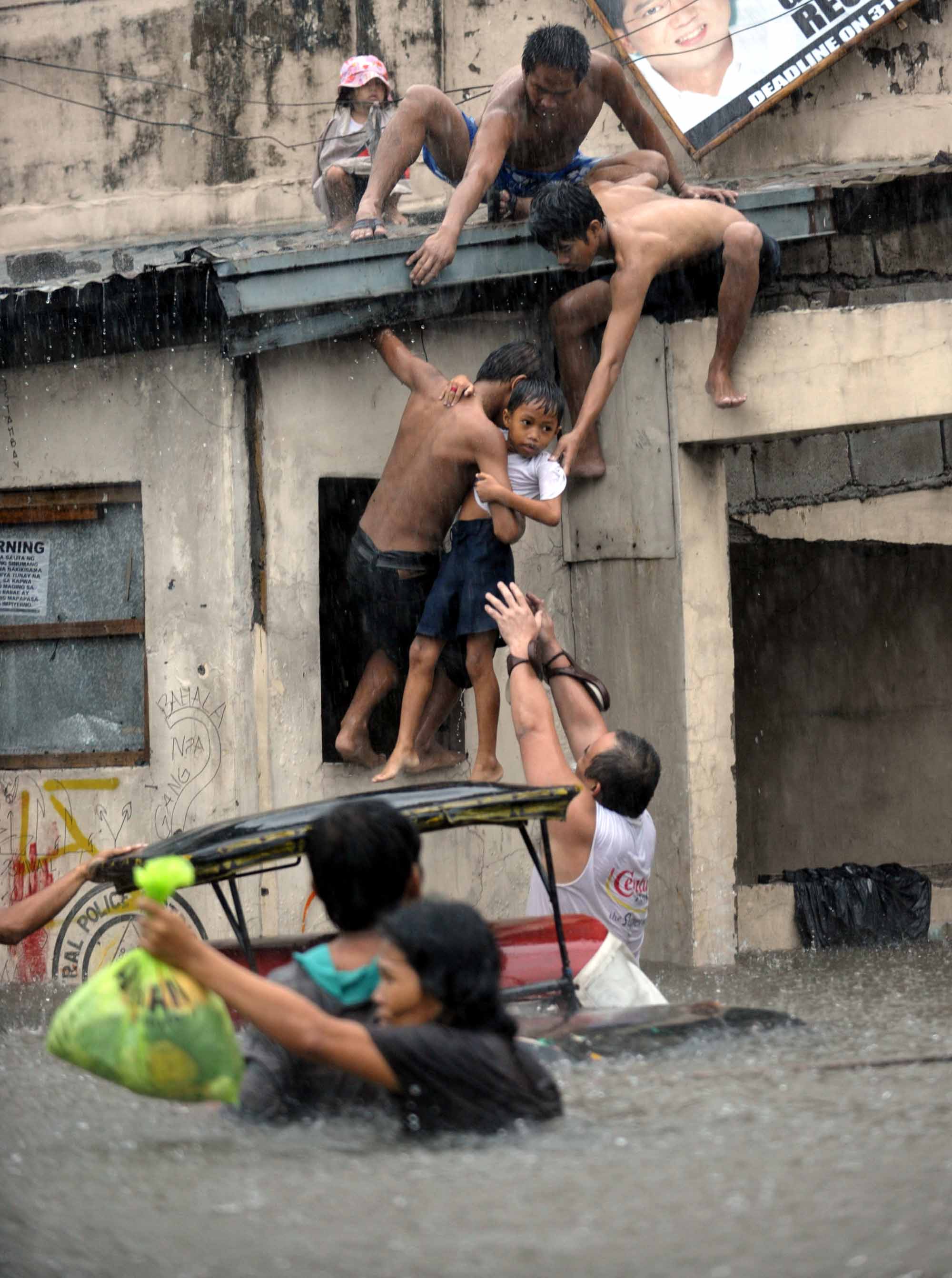
MANILA, Philippines (BP)–When Tropical Storm Ketsana blew through Manila Sept. 26, it dumped more rain in six hours than the Philippines’ capital normally receives the entire month of September, resulting in what has been called the worst flood in 40 years.
In any city, such rainfall would lead to flooding. For a crowded city that sits below sea level with an underdeveloped sewage system, the results proved disastrous. By late Saturday afternoon, the government reported 80 percent of Manila was under water.
More than 240 people have lost their lives and hundreds of thousands are displaced. Southern Baptist missionaries living in Manila expect the death toll to climb higher.
“Just in my area of town alone,” said Jill Harvell, a missionary living in Quezon City, “I can think of 22 people who have died as a result of this storm.
“People have been stranded on their rooftops for three days without food and water. Cars were floating down the streets. I’ve never seen anything like it.”
It is the worst flood that Shirley Seale, who has served in the Philippines since 1987, can recall.
“We’ve been assessing the needs in areas around Manila. One of our national pastors estimates that in one area alone, more than 100 are either dead or missing,” she said.
Many of the missionaries found themselves stranded at various locations around Manila when the rain came. However, as roads became passable, their thoughts immediately turned to the enormous needs around them.
By Sunday, Harvell — whose husband Greg was stranded in nearby Quezon province — already had submitted a request for funds from Baptist Global Response to help with relief efforts. By Monday, initial funds had been approved and released.
“When I arrived home Monday night, Jill had already organized Filipinos from our house church and the community,” Greg Harvell said. “They were all there packing bags of relief items to give away.”
Jill, together with her children and the national believers, packed 400 bags with rice, powdered milk, canned meat and coffee to distribute to those in the immediate areas affected by the flood.
Seventeen-year-old Josh Fern, whose parents, Dwight and Gloria Fern, were stranded at a school across town, opened their home to about 15 people affected by the storm, including one teenage girl who developed appendicitis.
“The girl’s parents also were stranded in another part of the city. Thankfully, though, there was a nurse in the group who helped care for her,” Gloria Fern said.
Getting the young woman to the hospital involved a number of vehicles, including a rubber raft.
Gloria was not surprised that her son opened their home to those in need. “Missionaries all over the city were opening their homes,” she said. “I had just finished major grocery shopping the day before, so we had plenty of food and supplies to share with others.”
After the Ferns arrived home, they began to think of other ways to help their community. Armed with shovels and rakes, the small group in their home headed out to assist with cleanup efforts in some of the more heavily damaged areas.
Long-term relief and cleanup will take months. More immediate needs involve rescue, temporary shelter and food and water,
“Typically, our goal in a disaster situation is to meet immediate needs first,” said Philip Monroe from the Asian Disaster Foundation, an organization that works with Baptist Gloral Response.
“Meeting short-term needs can take from two weeks to two months,” Monroe said. “Then once those needs are met, workers seek to identify a smaller segment of the population and develop a holistic and strategic approach to meeting their needs.”
In the Philippines, Monroe continued, this longer-term strategy will include involvement of national believers in relief and cleanup efforts as they seek opportunities to share the Gospel.
But for now, the challenge remains to meet immediate needs as quickly and efficiently as possible. With major food warehouses under water and grocery shelves nearly empty, it is difficult.
“This is the worst I’ve ever seen it,” Greg Harvell said. “The flooding … has affected everybody in the city.”
–30—
Tess Rivers is a writer for the International Mission Board.
















